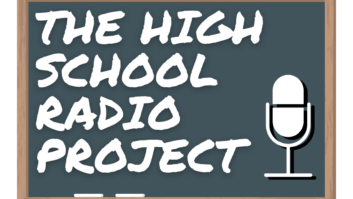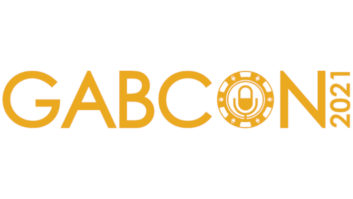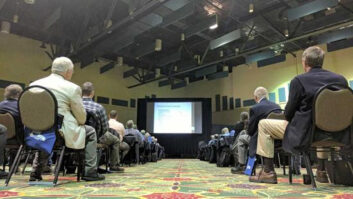Focused on radio content and programming, the annual International Radio Festival held its ninth edition last month in Valletta, Malta. Radio World spoke to festival Director Darryl von Daniken about the philosophy behind the event as well as the challenges that come with organizing such a unique gathering.
Radio World: What’s the idea behind the IRF and why did you launch this event?

Darryl von Daniken: Having been active in media for most of my professional life, and what’s more, having to rely on media to promote my businesses, I discovered — only some 10 years ago — radio’s uniqueness. It offers the most powerful form of storytelling and “connection” between a journalist and the audience, and I noticed that essentially radio/audio was missing from everyone’s media mix. Delving a little deeper, I also discovered that within todays one-dimensional, over digitized, face-to-screen world, there was no industry gathering where the power of the radio and audio content within media was debated, nor showcased. And in 2010, the idea of the International Radio Festival was born.
Radio World: What makes IRF different from other radio industry events?

von Daniken: The IRF Audio Conference, which is the only day in the “classroom” during the festival, represents the first and only industry platform for those with a vested interest in radio/audio production and broadcasting to debate and showcase the business and curation of music radio/audio content — specifically for the on-air hosts, their producers, programmers, and the music industry at large. The IRF is additionally distinctive in that its on-air showcases are broadcast live to the respective participant’s listeners back home, offering an unmatched opportunity to celebrate the medium of radio on a global scale with the general public.
[Read: International Radio Festival Celebrates Radio’s Reinvention]
Radio World: With participants this year from Russian, China, Turkey, India and Tunisia just to name a few, what is your goal in bringing together radio industry professionals from very different corners of the world?
von Daniken: Bringing together broadcasters from around the world offers incredible insight into the challenges and immense opportunities radio/audio offers in today’s headphone generation. Experiencing such global exchange and sharing of knowledge is truly inspiring for participants and we hear time and time again how it “re-ignites” their broadcasting flame and boosts creativity.
Radio World: What do you see as the greatest challenges for these stations at the moment and do you believe they share similar issues despite their different geographic locations?
von Daniken: The challenge for radio stations everywhere is to stop believing they are “just” a music service that needs to compete with the Spotify variations of the world, and instead embrace the unique opportunity of storytelling by personalities, whether combined with more or less music. In our over-digitized and unsociable world, radio’s strength is that it is local, where hosts enjoy the closest relationship (and influence) with audiences, allowing them to get on with their daily life without having to be glued to a screen. This in fact makes radio/audio the most sociable medium. I believe we will soon widely acknowledge that five minutes in-ear, delivers the same — if not more impact — than 55 minutes on-screen.
Radio World: Each year you set up a temporary on-air studio from which the stations take turns broadcasting to the local audience as well as back home to their own listeners. How do you ensure the technology is up to par and how do you manage each station’s broadcast?
von Daniken: We have an incredible team, many of whom have been with us since the beginning. In particular thanks to Gabby Sanderson’s diverse program curation, my daughter Daniela’s guest and hospitality management skills, Nick Mizzi’s organizational talents, Jean-Pascal Ruch and Simon Binggeli’s innovative tech team, supported by The Telos Alliance’s full product portfolio, the IRF has successfully completed its ninth edition and continues to attract world-class broadcasters.
Radio World: What language do they broadcast in?
von Daniken: The IRF is all about showcasing music radio/audio content, thus all featured radio programs are broadcast by IRF’s radio guests in their own language, playing their own jingles and, if a commercial station, their own advertisements. As their participation at the IRF represents an extraordinary moment compared to their daily schedule, most stations use the opportunity to broadcast a special show, often inviting other stations to drop in, or accepting phone-ins from back home; whatever takes place, it’s always a special moment in broadcasting.
[Read: International Radio Festival Highlights Station Talent]
Radio World: What are the issues of putting together this festival?
von Daniken: As I mentioned earlier, first and foremost it’s having the right team who are all passionate about radio and audio — and a host city/country that understands the positive impact radio delivers and the opportunity it offers their own media industry to network and share knowledge with global broadcasters, right on their doorstep.
Radio World: You have held events in Switzerland, Italy, the United Kingdom and Malta. Where will the next event take place, and how do you envision the IRF’s evolution??
von Daniken: We recognize that media, especially radio, is consumed in different ways across the world’s continents, and in response to this we are exploring opportunities to produce more than one edition per year, strategically placed around the world to best reflect the variety of broadcasting. After all, the IRF is synonymous with “Listen to how the world sounds,” so watch this space!










